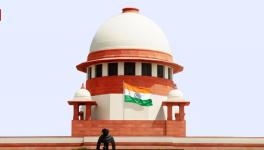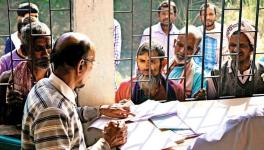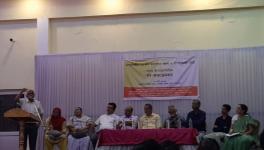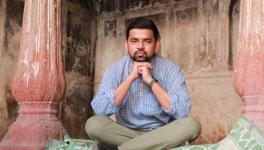Can India’s Power Elite Really be Trusted?
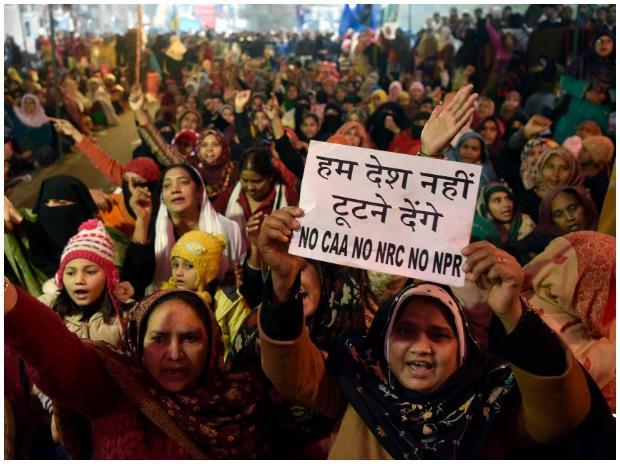
Image Courtesy: Business Standard
Can the power elite in India be trusted? Drawing roughly from Vilfredo Pareto and Gaetano Mosca’s Elite Theory, I am tempted to say—no. The power elite refer to that entire cohort with massive economic and political power—sometimes they are the journalists, often they are politicians and more often than not, the business tycoons. Media houses are owned by the Ambanis, the Prime Minister’s BFF; hence we get Arnab Goswami instead of Ravish Kumar, we get Gautam Gambhir instead of Atishi Marlena, and we get Sadhguru.
The point is, the power elite in India is highly corrupted under the present regime. Consequently, all promises of the government, of the media, of the big businesses are hollow. We cannot trust them.
However, this situation is not beyond anticipation—especially from the perspective of unmitigated influence of technology. We live in a world where governmentality forces its way in for replacing community ties. Consequently, digitisation is the new social. I do not say this only for restricted micro-interactions between individuals, but the big communications between the citizens and its government. Interestingly, same platforms are used for both. For a majority of Indians, WhatsApp is both a site of intimacy and of grand historical learning. Similarly, Aadhaar integrates me to the large bucket of citizenship wish-list in India, but not without recording my eye colour and finger prints. Echoing French philosopher Michel Foucault, we live in a surveillance society where surveillance is no longer the jurisdiction of the neighbourhood uncle but the local MLA, through e-governance, through WhatsApp, through KYC of nationalised banks.
Digitisation controls citizenship differently from the way communities control social life. As much as it records every detail of citizens and their activities, it can delete and re-write—hence fabricate—those details at ease too. With no physical, tangible mode of documentation such as scripts and books, digitisation has made ‘deleting’ of history possible—hitherto unknown to human civilisation.
At another level, digitisation compromises accuracy like never before. It can simply create and popularise a content till it “goes viral” and everybody starts believing in that content unquestionably just because it has. Hence what we get is fake news—that is far from an authentic past. By deleting the past—both of the individual and the community, and by creating fake contents replacing the past, governmentality replaces history and supplants community life. Replacing of history is effective in controlling memory, the defining premise of community life.
Deleting of the past, replacing of history, tampering of memory and creation of non-facts are grand projects systematically carried out by the dark symphony of the power elite—the media, the state, the market and the silent popular icons. What do we get by bringing Foucault and Chomsky together—an Orwellian society where surveillance manufactures consent. Hence, we cannot trust the media, the police, the state, the politicians or their cheer leaders. Does that mean that we stop trusting? Trust we must, just not the power elite, but the ordinary people.
Last few months have witnessed the emergence of something seminal in India—the rise of ordinary people. The rise of Shaheen Bagh. Here, Shaheen Bagh is not a physical site of resistance—it is a cognitive, emotional site of solidarity, sentiments and humanity across locations. Shaheen Bagh is an idea, a comradeship, a destination. Shaheen Bagh has made us believe once again in the power of the people, the unyielding courage of countless Indians whom the power elite now fear.
If fear they didn’t, then why would “Shaheen Bagh” be the only buzzword in the BJP’s electoral campaign in Delhi elections? If fear they didn’t, then why did they open fire at unarmed peaceful protestors? Fear if they didn’t, then why are they interrogating school children for enacting a play? In the battle between Shaheen Bagh and power elite, the people will win, but not in a day. Tomorrow might bring us a darker day if the BJP tampers with the EVM yet again and wins Delhi Assembly elections 2020, but if we continue to trust Shaheen Bagh, act Shaheen Bagh and be Shaheen Bagh, Dilli door nahin!
The author teaches gender and migration at the Global South Studies Centre, University of Cologne, Germany. The views are personal.
Get the latest reports & analysis with people's perspective on Protests, movements & deep analytical videos, discussions of the current affairs in your Telegram app. Subscribe to NewsClick's Telegram channel & get Real-Time updates on stories, as they get published on our website.









